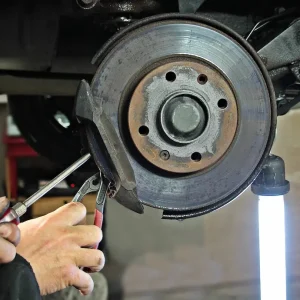Last week I travelled just over 700 miles attending meetings, which is about average for me. However, as I reflect back on the week’s activity I’d say that at least one meeting could have been conducted over the phone, another involved several people and had its agenda changed when I arrived – which meant I didn’t need to be there after all – and the other two were important and beneficial.
In reality I could have done half the mileage and there would have been no detrimental impact to my business or our customers; in fact by not travelling I could have had at least one extra day of productive time in the office.
Personally, I don’t believe anyone that says every meeting they attend is relevant, important and beneficial. And most of us would admit that for every 10 meetings perhaps four are essential and can’t be missed, four are of interest but could have been done over the phone and the remainder were a bit of a waste of time.
Yet, even though we know how much a meeting costs us in terms of fuel, our time and vehicle wear and tear we still carry on having them. And the irony is that many meetings I attend these days actually begin with a chat about how expensive fuel is and how congested our roads are as the coffees are made and we settle down to discuss business. It would seem us British are bored of commenting on the weather as part of pre-meeting niceties with pump prices and traffic jams far better topics to moan about.
So why do we insist on filling our cars up to head off to meetings when in our hearts we know many will be a waste of time? What is it that stops us picking up the phone and saying, ‘We could do this meeting via Skype couldn’t we’?
For me the solution lies with the UK’s largest companies.
The problem with many internal staff at large organisations is that they work for a company that’s so huge that they get too used to the string of external sales people waiting in reception, rarely giving any thought to the trouble, cost and effort that person has made to be there because for them the meeting takes place just yards from their desk. And to have a full diary within a major Plc is almost a status symbol.
As for the sales teams of these big businesses, their level of travel is a reflection of their activity and so cutting down could make them look less effective. Can you imagine the conversation between a sales rep and their boss when they state that they’re planning to cut back on meetings from now on!
The upshot is that there seems very little chance of the larger UK businesses making big cultural changes as no-one is brave enough to take the lead and declare that the number of meetings they attend is not a reflection of their worth. And being seen at their desk is a good sign; not an indication that they have nothing to do.
Taking my experience as an example, all I can say is that if I had said to the larger companies I visited last week that I wasn’t going to come (and could we do it by phone or Skype) would probably have damaged the relationship; even though it would have reduced my fuel bill by up to 50% and saved me a great deal of time. Multiply that across all the other people I see waiting in the reception areas of large companies and I’d suggest many millions of miles could be saved each week.
So, to all internal staff sitting in the large corporate offices across the UK. Please think twice before asking someone to visit you as to whether it’s really necessary and what you are likely to achieve. Because by having less meetings, you’ll be helping to reduce UK fuel usage, you’ll be benefiting the environment and saving many companies a great deal of expense. More important, you’ll be championing long-term cultural change which is something I believe is down to you, because the smaller businesses will never be able to spearhead it to the same degree.
Follow BusinessCar on TWITTER





